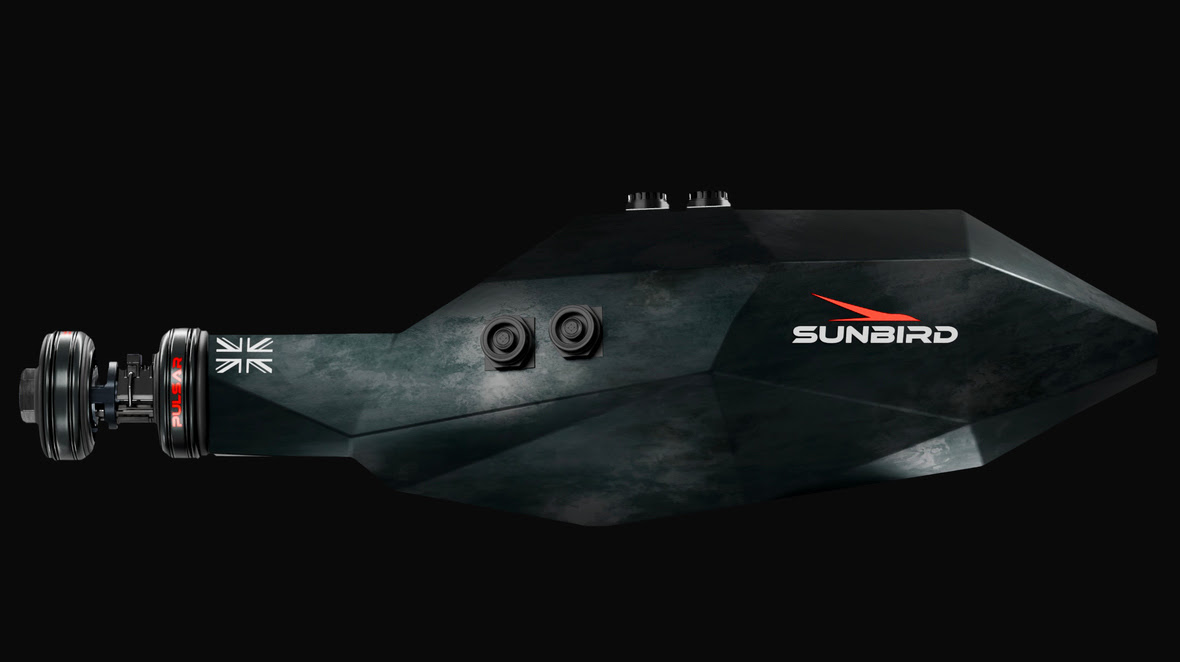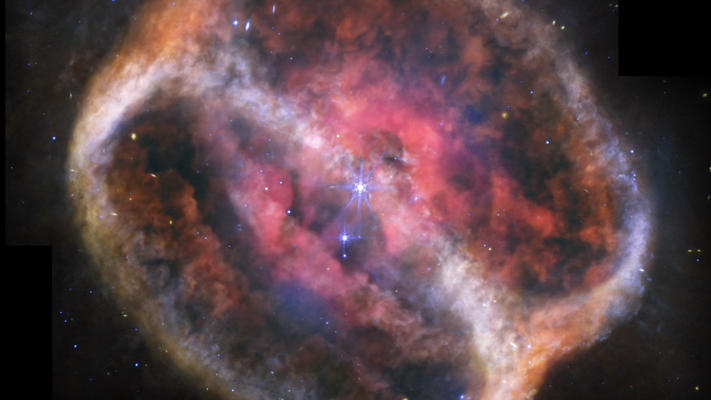In Extinction Debate, Dinosaurs and Science Writers are the Losers
Ever since a huge crater was discovered off Mexico's Yucatan Penninsula in the early 1990s, scientists have grown increasingly confident that an asteroid impact 65 million years ago wiped out the dinosaurs.
Science journalists have dutifully reflected this view.
A pocket of skeptics has never quite bought the scenario, however. Other environmental factors -- perhaps increased volcanic activity or long-term climate change -- likely played a role, many experts figure. A handful of researchers think the impact and the extinction were only minimally related.
Science journalists and headline writers make much of these stories, too.
Now in two separate papers revealed this week, researchers looked at the extinction of dinosaurs from two different viewpoints and drew completely opposite conclusions. The polarization of scientific views on the topic -- and its flip-flopping reportage -- achieved an extreme not unlike last night's presidential debate.
In one new argument, David Penny of Massey University in New Zealand and Matt Phillips from the University of Oxford contend the fossil record and the evolution of animals through modern times suggest the demise of dinosaurs began several million years before the catastrophic asteroid collision.
The dinosaurs were already in decline, Penny and Phillips believe, so the asteroid was only a nail in the coffin.
Get the Space.com Newsletter
Breaking space news, the latest updates on rocket launches, skywatching events and more!
But in this month's issue of the journal Geology, a group led by David Fastovsky of the University of Rhode Island make the opposite case: The variety of dinosaur types reached their peak around the time the asteroid struck.
Something happened
There is no question the asteroid impact caused significant extinctions of plants and animals, ending the Cretaceous period of the geologic record.
Exactly how the mass extinction played out is impossible to know for sure -- hence the widely disparate speculation.
Some studies suggest a global firestorm immediately killed off many or most dinosaurs, but that scenario is not proven. Or, a cloud of debris kicked into the atmosphere would have cooled the planet for months or years, many scientists say, wiping out plants and generating a domino effect on the food chain that lasted decades, perhaps even centuries.
Whatever, the fossil record shows a relatively quick end -- a few millennia is the blink of an eye evolution-wise -- to many plants and animals, including whatever dinosaur population existed before a roughly 6-mile-wide (10-kilometer) space rock carved out the Yucatan crater known as Chicxulub.
"We agree completely with the geophysicists that an extraterrestrial impact marks the end of the Cretaceous," said Penny, in a statement reported in newspapers and on the Internet this week. "But after 25 years [scientists] have still not provided a single piece of evidence that this was the primary reason for the decline of the dinosaurs and pterosaurs."
The idea was presented as new. But it is not.
Penny and Phillips did not examine any new evidence. Rather, they considered existing evidence and the methodology of previous studies.
They write that "dogmatic adherence" to the sudden-death-by-asteroid theory has served like blinders for the entire science community. Few researchers are investigating other possible causes, they say.
"I see the discovery of the asteroid impact that marked the end of the Cretaceous as simultaneously a high point, and low point of 20th Century science," Penny said.
"Outstanding," Penny says of the discovery. "But it was also a low point, equivalent to the report of supposed N-rays, cold fusion, and inheritance of acquired characters on the pads of the midwife toad."
The argument is made in the October issue of Trends in Ecology & Evolution.
Rise of mammals
Like Penny and Phillips, other scientists have questioned the widely held view that an asteroid was the primary cause. Gerta Keller of Princeton University contends the Yucatan impact occurred 300,000 years before the extinction of the dinosaurs, thus suggesting a slow post-impact die-off. Other researchers doubt her methodology, however.
The whole issue is important for evolutionary biologists, because when dinosaurs exited the scene, birds and mammals were able to flourish. Birds, most experts believe, are direct descendents of dinosaurs. Mammals spread and diversified rapidly once the large predators were gone.
The transition is called the K-T boundary, scientific code for the shift between the Cretaceous and Tertiary periods of the geologic record. The evidence exists in a telltale layer of Earth found in many parts of the globe.
Penny and Phillips call on scientists to more closely examine fossil and genetic evidence in an effort to more accurately determine when the decline of dinosaurs began. Other scientists point out, however, that the fossil record is patchy for the era, and that it is virtually impossible to pin down the timing of events to better than centuries or millennia of accuracy.
Advances in DNA analysis could help, Penny and Phillips argue. They say a careful study of the genes of living birds and mammals, compared to what's known about their ancestors, might determine if they arose very quickly after the asteroid impact -- supporting the popular theory. If the evolutionary expansion was more gradual, the prevailing wisdom would suffer a blow.
The other view
Benny Peiser, an anthropology professor at Liverpool John Moores University in the UK, moderates the electronic newsletter CCNet, devoted largely to natural catastrophes and mass extinctions. He has closely followed news coverage of the two views over the past two days -- coverage that often reported just one view or the other and gave the impression it was conclusive.
Peiser says Penny and Phillips are arguing "a rather outdated geophysical theory" known as gradualism, which holds that evolution always occurs slowly, the result of small modifications over time.
Peiser is skeptical of the idea that dinosaurs and other species died out over millions of years.
"The key question of the K/T mass extinction ... is not whether or not the dinosaurs may have been in decline at the time the impact occurred 65 million years ago," Peiser wrote yesterday.
"That question is largely irrelevant because species do not necessarily or inevitably become extinct every time their numbers decline," Peiser says. "In short, there is no compelling evidence to suggest that the dinosaurs would have died out in any case had the K/T impact never occurred."
The losers
After a round of discussion about the Penny and Phillips paper, Fastovsky's Geology article came to the attention of Peiser and others who follow his newsletter.
Fastovsky's team examined the global fossil record for the last few million years of the Cretaceous period, looking specifically for any possible decline in dinosaur species prior to the asteroid impact. Instead, they found an impressive variety of survival strategies and behaviors.
Fastovsky and his colleagues say previous studies that had shown a gradual decline prior to sudden death were wrong, typically having been based exclusively on the records of North American dinosaurs.
Today's headlines -- including in The Independent and The Melbourne Herald Sun -- made much of dinosaurs being wiped out in their prime, as though that was a fresh notion.
In all this hubbub, Peiser sees a clear loser, in addition to the dinosaurs.
"Once again we are faced with a textbook example of sloppy, unbalanced and misleading science reporting," Peiser wrote today. "If science coverage continues on this slippery slope, the public's trust in the reliability of science news may well fall to the level of political news coverage."
- Asteroid Impact Tied to Rise of Dinosaurs, Too
- Dread Factor: Why We Fear Ourselves More than Asteroids
- NASA Scientists Call British Media's Asteroid Hype Unethical Rubbish
- Catastrophe Calculator: Estimate Asteroid Impact Effects Online
Join our Space Forums to keep talking space on the latest missions, night sky and more! And if you have a news tip, correction or comment, let us know at: community@space.com.

Rob has been producing internet content since the mid-1990s. He was a writer, editor and Director of Site Operations at Space.com starting in 1999. He served as Managing Editor of LiveScience since its launch in 2004. He then oversaw news operations for the Space.com's then-parent company TechMediaNetwork's growing suite of technology, science and business news sites. Prior to joining the company, Rob was an editor at The Star-Ledger in New Jersey. He has a journalism degree from Humboldt State University in California, is an author and also writes for Medium.









